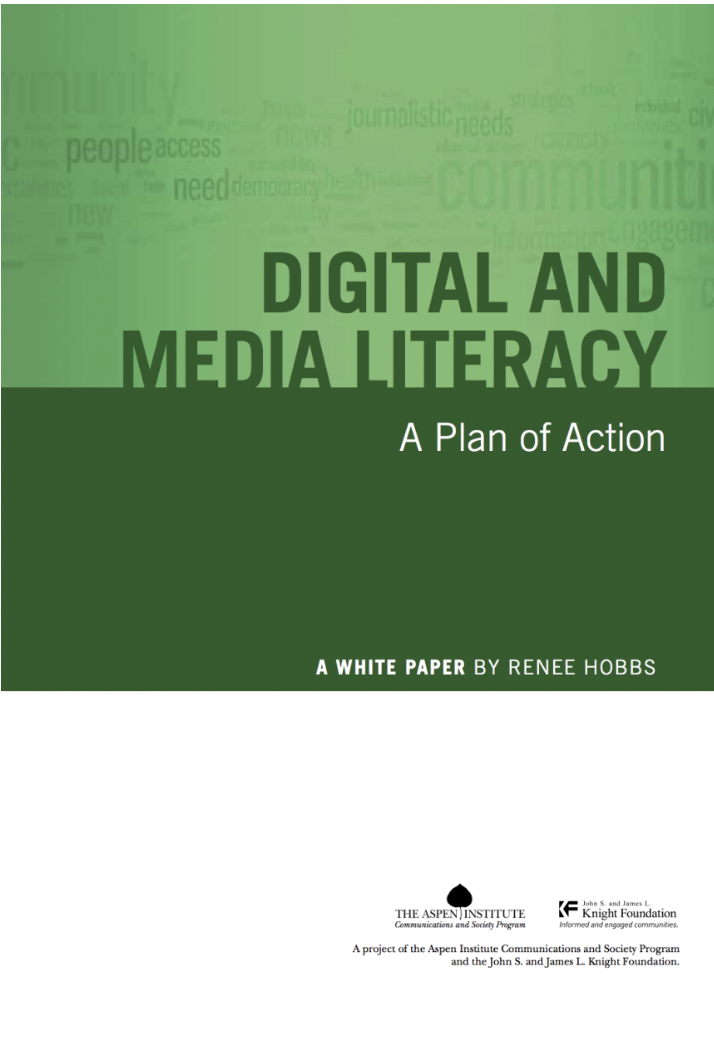Why all Americans need a set of digital and media literacy competencies
This plan offers specific steps for policymakers, educators, and community advocates to develop a community education movement for digital and media literacy.
 Whether it’s touch screen computers, smart phones, or user-generated news sites, access to information does not automatically translate into knowing how to use these tools in effective ways that help people in their everyday lives.
Whether it’s touch screen computers, smart phones, or user-generated news sites, access to information does not automatically translate into knowing how to use these tools in effective ways that help people in their everyday lives.
WHY IT MATTERS
All Americans can benefit from learning how to access, analyze, and create digital and media content with thoughtfulness and social responsibility. This was one of the key recommendations of the Knight Commission on the Information Needs of Communities in a Democracy in its landmark report, Informing Communities, issued last year. This blue ribbon commission of 17 luminaries recommended that digital and media literacy be viewed as a critical element in all levels of education, and with institutions such as libraries in local communities.
Ensuring that citizens are equipped with the analytical and communications skills they need to be successful in the 21st century will require a comprehensive plan that positions digital and media literacy as an essential life skill and integrates it into advocacy campaigns, education curricula, and community-based initiatives across the nation. To address this need, Renee Hobbs has outlined a plan with specific steps that policymakers, educators, and community advocates can take to help Americans thrive in the digital age.
See samples of press coverage here.